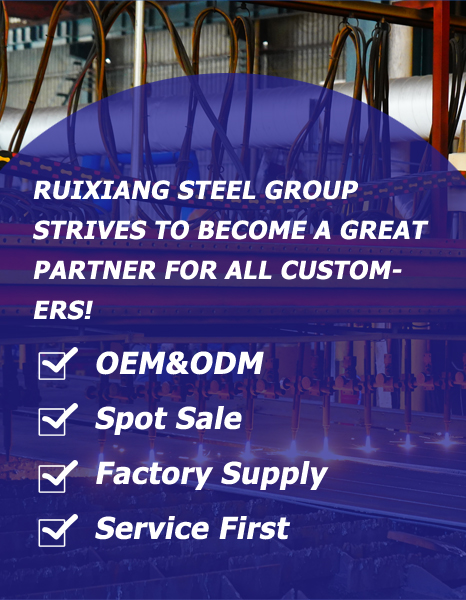Causes and Effective Prevention Methods for White Rust on Galvanized SteelWhite rust is a common issue that affects the appearance and integrity of galvanized steel surfaces. Understanding its causes and implementing proper prevention methods is essential for maintaining the longevity and aesthetic appeal of your steel products. As a trusted supplier in the industry, Ruixiang Steel Group provides comprehensive guidance to help you effectively manage this challenge.
What is White Rust and How Does It Form?White rust appears as a white, powdery, or waxy deposit on galvanized steel surfaces. Unlike the red rust that forms on bare steel, white rust specifically attacks the zinc coating. This phenomenon occurs when the zinc coating undergoes a corrosion process, typically forming zinc oxide, zinc hydroxide, or basic zinc carbonate.
The primary cause of white rust formation is prolonged exposure to moisture in the absence of free-flowing air. This commonly happens when:
Galvanized surfaces are stacked or stored without proper spacing
Materials are exposed to rain, condensation, or high humidity
Water is trapped between steel surfaces during transportation or storage
The protective patina layer (zinc carbonate) hasn't fully developed
Environmental Conditions That Promote White RustCertain conditions significantly increase the risk of white rust formation:
High Humidity: Environments with relative humidity above 60% accelerate moisture accumulation
Temperature Fluctuations: Cycles of warming and cooling promote condensation
Lack of Ventilation: Stagnant air prevents moisture evaporation
Chloride Exposure: Coastal areas or environments with salt exposure can worsen the condition
Effective Prevention StrategiesProper Storage and HandlingEnsure Adequate Spacing: Place spacers between galvanized items to allow air circulation
Avoid Ground Contact: Store materials on raised platforms or racks
Implement Proper Stacking: Use appropriate dunnage and maintain minimum 6-inch ground clearance
Promote Air Flow: Arrange storage to maximize ventilation around all surfaces
Transportation ProtectionUse Absorbent Materials: Place desiccant packets or moisture-absorbing materials between tightly packed surfaces
Apply Protective Coatings: Temporary protective oils or waxes can provide additional protection during transit
Ensure Proper Covering: Use waterproof covers that allow ventilation while protecting from direct rain
Environmental ControlMaintain Dry Conditions: Store galvanized steel in dry, well-ventilated areas
Control Humidity: Use dehumidifiers in enclosed storage spaces
Prevent Condensation: Avoid sudden temperature changes that cause moisture formation
Design ConsiderationsAvoid Water Trapping: Design structures with proper drainage to prevent water accumulation
Specify Appropriate Coatings: Choose specialized coatings for challenging environments
Implement Regular Inspection: Establish routine checks for early detection
Treatment of Existing White RustFor minor white rust formation:
Clean Affected Areas with a stiff brush and mild detergent solution
Rinse Thoroughly with clean water and ensure complete drying
Apply Zinc-rich Paint to restore protection in severely affected areas
For extensive white rust damage, professional treatment may be necessary to restore the protective coating.
Why Choose Ruixiang Steel Group?At Ruixiang Steel Group, we prioritize quality control throughout our manufacturing and handling processes to minimize white rust risks. Our expertise includes:
Implementing proper storage protocols in our facilities
Providing technical guidance on prevention methods
Offering products with optimal zinc coating thickness
Ensuring proper handling during loading and transportation
By understanding these causes and implementing these prevention strategies, you can significantly reduce the risk of white rust formation on your galvanized steel products. Our technical team is always available to provide specific recommendations tailored to your project requirements and environmental conditions.
 Click:666Edit: Admin
Click:666Edit: Admin Time:2025-10-04 12:06:28
Time:2025-10-04 12:06:28

